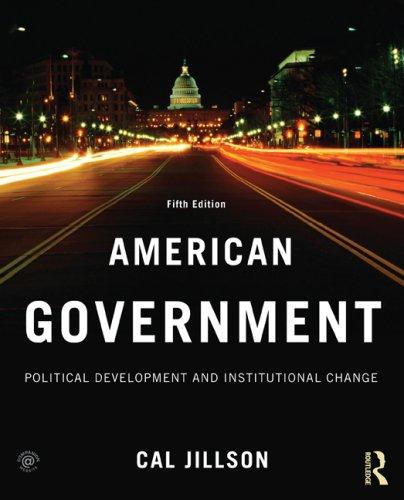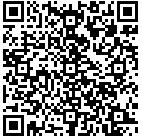Course Information Overview
- Political Science 155 OF
- Fully online asynchronous course
- Moodle will be used as the course learning management system (http://moodle.csun.edu)
Course Description
The focus of this course will be California state and local as well as national government. We will begin the course with our founding fathers and the philosophy leading to the U.S. Constitution, our political institutions and processes. We will cover every branch of government in addition to our bureaucracy to learn the role of each, especially in relation to one another at the various levels. The class will incorporate current national and state political examples.
The course is set up in an asynchronous format, which means there are no set days or times for you to be online. The only exception to the latter is will be the midterm and final exams.
The course is divided into 16 weeks with weekly modules. There are one or more chapters required in each week's module along with corresponding Moodle activities such as videos, podcasts, links to original historical documents, pictures, quotes, governmental web pages and other educational sites. You will be given exactly one week to complete your discussion questions and other weekly graded and non-graded assignments.
Course Requirements
DISCUSSION QUESTIONS:
You are required to participate in discussion groups every week. Each week you will be reading the chapters and addressing the discussion question pertaining to the chapters covered. The group discussions will end once the week is over and you will be unable to go back and make-up any previous assignments. The goal of the discussion questions is to create student interaction and learning through class discussions, which usually exist in traditional classrooms. You are all encouraged to interact with one another and exchange ideas within the discussion sections. If you do not agree with a classmate’s response, then argue your point and let us know why.
*You are in a classroom of 60 students, which means there will be 60 different opinions that need to be respected by all. You will be permitted and encouraged to voice your opinions, ideas and thoughts as long as they are done so in an educated and courteous manner.
The week ends on Saturday, which means Saturday is the very last day for you to complete your discussion questions and any other graded assignments (scavenger hunts and quizzes). There may be exceptions to the latter as a result of University scheduling for national holidays and official campus closings.
EXAMS:
All the course exams will be timed. Please see the Course Schedule below for the specific dates and mark your personal calendars in advance. Quizzes/exams may NOT rescheduled.
-
Quizzes:
There are 2 quizzes scheduled for the semester. The quizzes will be available for the entire week (from Sunday to Saturday), but will be timed once a student has logged into a quiz. Each student is permitted 2 attempts for every quiz. It is the student's choice whether he/she would like to take it once or twice. Your highest score will be recorded into the course gradebook.
Midterm exam:
There will be one midterm exam, which will be a combination of true/false, multiple choice and/or fill-in the blank questions.
Final exam:
The final exam will also include a combination of true/false, multiple choice and/or fill-in the blank questions.
*Another important course requirement is having regular access to a computer and a CSUN email address in order to participate in the course. There are computer labs located all throughout campus including the Oviatt Library and the University Student Union.
Student Learning Objectives
The overall goal of this course is to provide you with an understanding of how our government works at each level (national, state and local). The specific learning objectives and criteria for assessment for the course include:
-
Active Citizenship and Civic Engagement – Students should demonstrate a knowledge and awareness of contemporary issues, political institutions, and problems in the community and their historical contexts. Students should demonstrate an understanding of the importance of community involvement and leadership.
-
Assessment criteria for discussion questions and graded assignments– Evidence suggests that student is able to identify a major political and/or policy problem and is able to conceptualize and analyze the causes of the policy issues
-
-
Political Decision Making – Students should demonstrate an in-depth understanding and knowledge of the political institutions through which public policies are formulated, modified, and implemented.
-
Assessment criteria for discussion questions and graded assignments – Evidence suggests student is able to identify political issues and link them to the institutions involved in solving these issues.
-
Grading
There will be 200 points available for the course. The grading will be broken down as follows:
| Quiz 1 | 20 |
| Quiz 2 | 20 |
| Midterm Exam | 40 |
| Final Exam | 54 |
| Discussion questions | 54 |
| Graded assignments (scavenger hunts) | 12 |
| 187 - 200 | A |
| 180 - 186 | A- |
| 179 - 173 | B+ |
| 172 - 167 | B |
| 166 - 160 | B- |
| 159 - 153 | C+ |
| 152 - 147 | C |
| 146 - 140 | C- |
| 139 - 133 | D+ |
| 132 - 127 | D |
| 126 - 120 | D- |
| 0 - 119 | F |
*There will be no extra credit available for the course.
Course Schedule
How to Begin
Once you have successfully logged into Moodle, begin navigating the site and familiarizing yourself with the course. If you are new to Moodle, you may find a Moodle Student tutorial located in the top left CSUN block. Also, please be sure to fully read the Moodle Student FAQs for this course.
Reading and Module Schedule
Week 1 January 23 - 28 * |
|
|---|---|
Week 2 January 29 - February 4 |
|
Week 3 February 5 - 11 |
|
Week 4 February 12 - 18 |
|
Week 5 February 19 - 25 |
|
Week 6 February 26 - March 3 |
|
Week 7 March 4 - 10 |
|
Week 8 March 11 - 17 |
|
Week 9 March 18 - 24 |
|
Week 10 March 25 - 30 * |
|
Week 11 April 8 - 14 |
|
Week 12 April 15 - 21 |
|
Week 13 April 22 - 28 |
|
Week 14 April 29 - May 5 |
|
Week 15 May 6 - 11 * |
|
Week 16 May 13 - 15 * |
|
* Shortened weeks
Quizzes/Exams
| Quiz 1 | Week 5 |
|---|---|
| Midterm Exam | March 16 (Friday) |
| Quiz 2 | Week 12 |
| Final Exam | May 15 (Tuesday) |
At any time this syllabus may be amended or revised. However, students will be notified if any changes are made.


